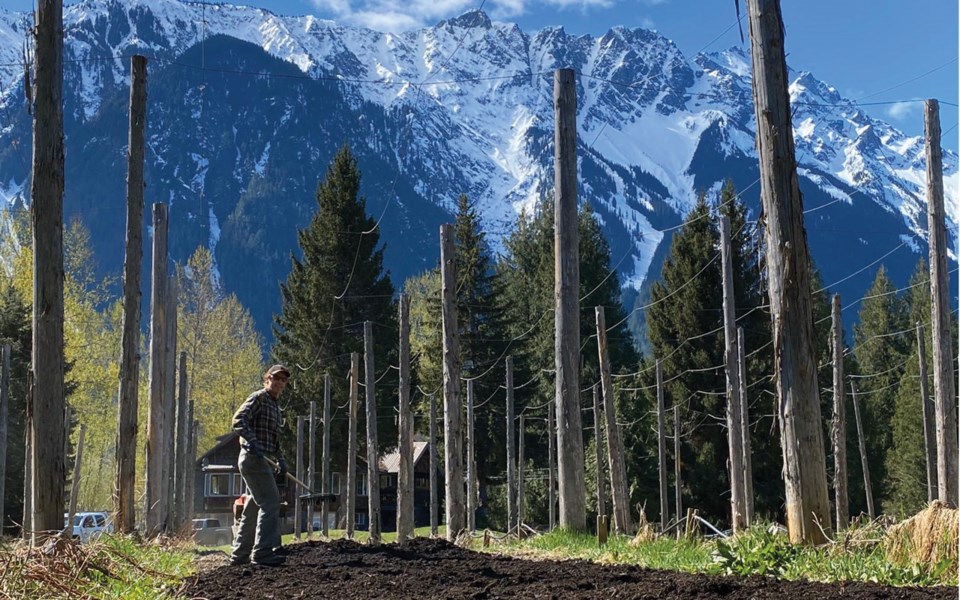Many things this summer don’t look like they used to—including Paul Selina’s Pemberton farm.
In place of his usual hop crops, there are now vegetable beds that are in the midst of producing healthy food for local seniors.
“The idea came from myself and Wendy [Paulson]—she’s a professional farmer, horticulturist,” said Selina, the former president of the Pemberton Lions Club. “With the onset of COVID-19, we realized the importance of keeping the immune system high for seniors.”
When the pandemic first hit, Selina realized there would likely be less demand for his hops as restaurants and bars closed down. The idea of using the space for vegetables to give away instead seemed like a win-win, he said.
“To be honest with you, it’s not going to hurt me economically. The hops won’t be going to market anyway. It’s a case of putting it to good use,” he added.
While the Lions run the Pemberton Villas, which houses seniors, the program is open to any seniors in the community who feel they could benefit from a weekly box of vegetables.
Currently there are roughly 20 people signed up, with a full capacity for 50 to 60 people.
“It’s an ongoing project and we’re getting more and more seniors signed up for it,” Selina said. “It’s free, it’s funded by the Lions and other generous donors.”
The other benefit of the new program: With events like Canada Day, the Slow Food Cycle, and the Barn Dance all either cancelled or uncertain, the Lions have seen most of their volunteer opportunities dashed.
To that end, the garden gives them new focus. “It’s healthy to have a project that keeps club members together,” Selina said. “We can social distance, we’re outside, we can farm safely.”
Exactly what is being harvested each week changes with the growing season, added Paulson. They’re growing everything from cauliflower, chard, cabbages and beans to lettuces, carrots, and beets.
They also spearheaded an adopt-a-tomato-plant program. “We adopted out 108 to various people who wanted one,” Paulson said. “We started [the program] back when we were all isolated so they could have something to care for. I think it’s something to look forward to in the future.”
Further out in D’Arcy—where residents were too far away to have a weekly box delivered—they adopted out a variety of other plants, including broccoli and cauliflower.
“I got a lovely thank-you letter from a lovely woman in D’Arcy,” Paulson said. “I think this year the concern was the prices [of fresh produce] would rise and that nutrition would become more and more expensive. Food security was important in improving the health of seniors and most vulnerable.”
As for the club itself, it has been beneficial to have a space to connect in person after months of Zoom meetings.
“It’s a way to gather and social distance,” Paulson said. “The Lions are an amazing group. I pretty much keep it to [attending] once every two weeks … It was a lot more work initially. But the burden is not as much as you would think, considering we always have so many volunteers.”
The Pemberton community is also on board with the project, she added. Nearly every business organizers asked for help has been eager to take part.
“So many people have been so generous,” said Paulson. “We’ve had so many donations from the community.”
In the meantime, if the group ends up with more vegetables this season than seniors in need of them, they will donate the leftovers to the food bank.
“We are able to accommodate more seniors, weather depending,” Paulson said. “Originally, we planted the garden for between 50 and 60 people. If we don’t find someone who needs it there’s always the food bank or we can sell to Lions and donate it back that way.” n




